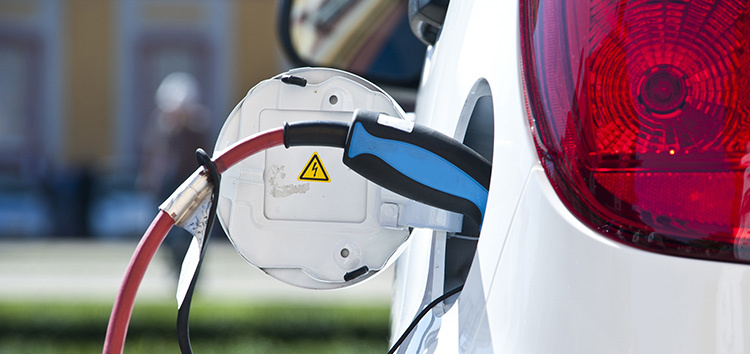With the electric vehicle market expected to drive demand for 200,000 tons of rare earth elements in North America through 2030, work is being put in by industry and policy makers to restore the region's rare earth element supply chain.
Efforts are being made in Canada and the US to shift dependency away from Chinese rare earth element reserves. There are many reasons why North America is looking to onshore its processes, one of the biggest being concern around potential supply chain choke points in the event China decides to cut off rare earth element supply due to geopolitical wrangles.
Demand for the material is expected to skyrocket, with an estimated 315,000 tons of rare earth elements needed by 2030, most of them for EVs.
What is being done by North American mines to ensure they can keep up with demand without needing to rely on Chinese rare earth element supply and Far Eastern separation facilities? What type of government policy needs to be implemented to help speed the onshoring process along?
Mountain Pass
Las Vegas-based MP Materials owns the only operating rare earth mine and processing facility in the US. The Mountain Pass Mine, in California, is an open pit site that supplied 15.8% of the world’s rare earth production in 2020. In late April, MP Materials began construction at its first rare earth metal, alloy, and magnet manufacturing facility with the intention of fully restoring the US' rare earth magnetics supply chain. The plans include establishing hydrometallurgy and separation facilities, along with the manufacturing fab, at a site expected to be completed in 2025. Becoming a closed-loop operation that can convert refined materials into metals and alloys would mean the company would no longer have to export its mineral concentrate material to China for processing, thereby onshoring the process and decoupling the current supply chain.
MP Materials' substantial, $700 million investment is the first of its kind in the US and would be able to produce approximately 1,000 tons per year of neodymium-iron-boron (NdFeB) magnets, thereby supporting the production of approximately 500,000 EV motors, with room to scale. In addition to electric vehicles, NdFeB magnets are used in robots, drones, defense systems, wind turbines, and many other high-growth technologies.
Mine progress
Just before construction began at the mine, MP Materials was awarded $35 million by the US government's Department of Defense to refine and separate heavy rare earth elements to further support onshoring of both the mining and processing procedures. At around the same time, MP Materials and General Motors (GM) announced a definitive supply agreement for Mountain Pass to produce alloys and magnets for GM's electric vehicle programs. Under the long-term contract, MP Materials will supply US-sourced and manufactured rare earth materials, alloy, and finished magnets for the electric motors for more than a dozen GM models, with a gradual production ramp expected to begin late this year, starting with alloy supply.
This means that not only will Mountain Pass be expected to produce enough rare earth elements to fulfill the Pentagon’s Department of Defense requirements, it must also meet the alloy requirements needed to make electric motors for GM. How is this all possible without significant government support?
More help needed
Although tremendous efforts have been made to begin decoupling supply chains from China, to shift processing to onshore facilities, there is still a significant gap between domestic supply and demand. One solution to this which US president Joe Biden and Canadian prime minister Justin Trudeau should consider is the creation of upstream investment incentives for suppliers of these critical minerals – particularly the metals needed for EV motors.
In late December, the Canadian government published a strategy to increase the responsibly-sourced supply of 31 critical minerals. It was backed by $3.8 billion in the 2022 budget, including $40 million to support northern regulatory processes and a 30% exploration tax credit for targeted minerals.
The issue is that these budget promises are currently no more than smoke and mirrors. Brandon Macdonald, CEO and director of Canadian miner Fireweed Metals, says he would like Ottawa to extend flow-through tax credits as there is capital scarcity during the lengthy permitting process for mining.
Flow-through shares
Macdonald is also calling on the Canadian government to invest in infrastructure including roads, power grids, smelters, and refineries. Although Ottawa’s strategy is meant to accelerate strategic projects, build sustainable infrastructure, and make assessments more efficient, if the right companies – the ones uniquely positioned to begin fulfilling national demand within a couple of years – are not supported financially, the nation could be no closer to decoupling supply chains in 2025 than it is today.
Policy wishlist
Much work remains to be done to onshore North America's rare earth element supply chain.
If the US and Canadian governments explore different incentives for junior mining companies, the sector could see expedited infrastructure and supply chains decoupled from China becoming a reality much, much more quickly. The time to act is now, given rare earth element demand is expected to soar as North America looks to reduce its carbon footprint by rolling out EVs at mass scale.
Ultimately, the grip China has over North American supply is expected to loosen over time, particularly as new mines such as Mountain Pass come into full operation, but onshore rare earth processing could be further accelerated with the help of proper government funding and support from policy makers.
The world outside China needs more rare earth element mines and processing and separation facilities in order to reduce its dependence on the Far East for critical minerals.
 About the author: Dr Luisa Moreno is president of Vancouver-based rare earth miner Defense Metals Corp. She is a physics engineer with a PhD in materials science and mechanics from Imperial College London, in the UK. She is known as a leading analyst in rare earths and has published several reports and articles for the investment community. Dr. Moreno has co-authored a book on mineral processing and project financing and authored a number of advanced industry and technical reports on several technology minerals.
About the author: Dr Luisa Moreno is president of Vancouver-based rare earth miner Defense Metals Corp. She is a physics engineer with a PhD in materials science and mechanics from Imperial College London, in the UK. She is known as a leading analyst in rare earths and has published several reports and articles for the investment community. Dr. Moreno has co-authored a book on mineral processing and project financing and authored a number of advanced industry and technical reports on several technology minerals.
The views and opinions expressed in this article are the author’s own, and do not necessarily reflect those held by pv magazine.
This content is protected by copyright and may not be reused. If you want to cooperate with us and would like to reuse some of our content, please contact: editors@pv-magazine.com.



Hello, I represent a not-for-profit sustainable society that hosts monthly presentations on topics such as renewable energy, climate change etc. We would interested in Dr. Luisa Moreno’s presentation on North America’s bid to onshore rare earth supply. is this something you would consider allowing us to present at one of our monthly events. Please see: Walk the Talks Sustainability Society Facebook page